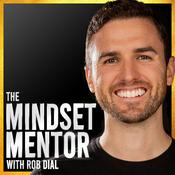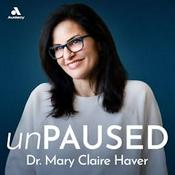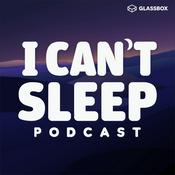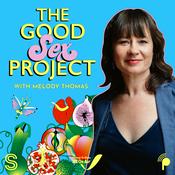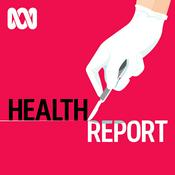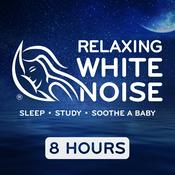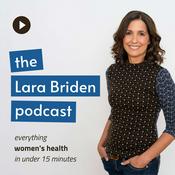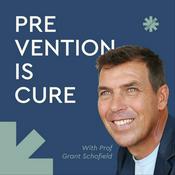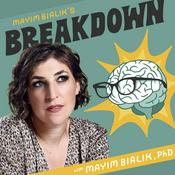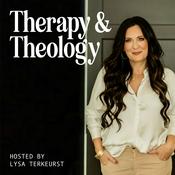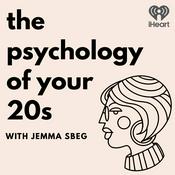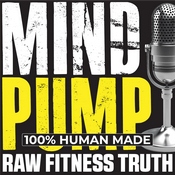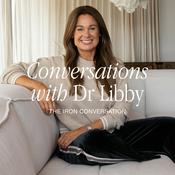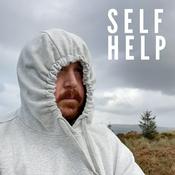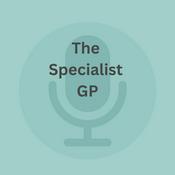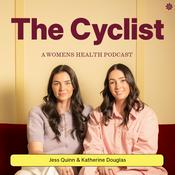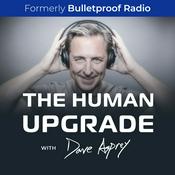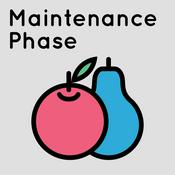625 episodes

Strength and power training and testing for goalkeepers with Yoeri Pegel
12/6/2025 | 51 mins.
In this episode of the Pacey Performance Podcast, Rob and Yoeri Pegel discuss the unique challenges and demands faced by goalkeepers in modern football, particularly in the context of Yoeri's transition from Ajax to San Diego FC. They explore the specialized training required for goalkeepers, the evolving role of goalkeepers in the game, and the importance of tailored strength and conditioning programs. The discussion also touches on the testing and monitoring of goalkeeper performance, emphasizing the need for a deeper understanding of their physical demands and the future of goalkeeper training. In this conversation, Yoeri discusses the intricacies of training and testing for goalkeepers, focusing on lateral movement, physical capacities, and the differences in training compared to outfield players. He emphasizes the importance of profiling athletes to tailor training programs effectively, the significance of frontal plane strength, and the role of plyometrics in goalkeeper performance. Yoeri also shares his future aspirations for developing assessment methods and training techniques for goalkeepers. Main talking points: Goalkeeper training is often less specialized in strength and conditioning compared to outfield players. Plyometrics should be integrated into goalkeeper training. Assessing upper extremity strength is important for goalkeepers. Training should be periodized based on practice demands. Deep tier plyometrics can enhance force production at speed. Lateral jump capacity is crucial for goalkeepers' performance.

Reintroducing linear speed and change of direction post-injury with Loren Landow
05/6/2025 | 49 mins.
In this episode of the Pacey Performance Podcast, Loren Landow discusses his extensive experience in the performance field, including his transition from business ownership to his current role at Notre Dame. He emphasizes the importance of a team approach in rehabilitation, the integration of various disciplines, and the balance between art and science in the rehabilitation process. Loren shares insights on the industry's evolution regarding return to play protocols, the significance of maintaining engagement during rehabilitation, and the criteria for progression in recovery. In this conversation, Loren Landow discusses the intricacies of rehabilitation, focusing on movement patterns, the significance of the foot and ankle, and the mechanics of deceleration. He emphasizes the importance of investigating movement, restoring ankle dorsiflexion, and building intensity in training. The dialogue also covers the integration of reactivity in rehabilitation, the assessment of asymmetry, and the collaboration required for effective return to play processes. Landow highlights the need for ongoing communication and involvement even after athletes reintegrate into practice. Main talking points: There is an art to rehabilitation that goes beyond numerical models. Good collaborative teams yield the best outcomes in return to play. Experienced coaches should lead return to play situations. Restoring rhythm and stability is crucial in the initial stages of rehab. Deceleration mechanics are essential for injury prevention and rehabilitation. Intensity in training should be based on the athlete's needs, not just external loads. Reactivity should be introduced early in the rehabilitation process.

Gut health and its impact on recovery and rehabilitation with Tyler Lesher
29/5/2025 | 46 mins.
In this episode of the Pacey Performance Podcast, Tyler Lesher, head athletic trainer for UCLA men's basketball, discusses the current state of athletic training in the US, the importance of gut health in recovery, and the challenges faced by athletic trainers. He emphasizes the need for a balance between research and clinical practice, the gut-brain connection, and practical interventions for improving gut health. Tyler also shares insights on assessing gut health and the significance of testing for athletes. Main talking points: • Athletic training jobs are declining due to various factors. • Gut health is crucial for overall recovery and performance. • Research can often be biased and not applicable to real-world scenarios. • Chronic inflammation can hinder recovery processes. • Fasting and cold water immersion can improve gut health. • The gut-brain axis significantly affects mental health. • Personalized testing is essential for understanding individual gut health. • Athletes should keep a food and symptom journal to identify triggers. • Interventions for gut health should be tailored to the individual. • Communication with athletes about nutrition is vital for their performance.

Understanding, diagnosing and preventing athletic hip and groin pain with Enda King
21/5/2025 | 50 mins.
In this episode of the Pacey Performance Podcast, Rob welcomes back Enda King to discuss the complexities of athletic hip and groin pain. He explores the upcoming conference where Enda will present on leading hip and groin issues, delve into the challenges of diagnosing and managing these injuries, and discuss the importance of understanding the underlying causes of pain. Enda shares insights from his role in Doha at Aspetar, focusing on clinical pathways and the evolution of rehabilitation practices. The conversation highlights the significance of a comprehensive assessment and the need for tailored rehabilitation strategies to effectively address groin pain in athletes. In this conversation, Enda discusses the complexities of managing groin pain in athletes, emphasizing the importance of understanding movement patterns and asymmetries. He outlines strategies for assessing and monitoring recovery, as well as injury prevention techniques. The discussion also touches on the evolution of rehabilitation practices and the trends observed in the field over the past five years. Main talking points: Diagnosis of groin pain is complicated due to variability in symptoms and anatomy Hip and groin pain involves a combination of load, biomechanics, and anatomy Surgical options for groin pain are limited and often unnecessary Failed rehab often results from a narrow focus on pain rather than underlying issues Effective rehabilitation requires identifying all contributing factors to pain Assessment should include both strength and motor control evaluations Asymmetry in movement is crucial for injury assessment Pain provocation tests are key indicators of RTP progress Rotational abdominal work is vital for injury prevention Understanding human movement as a skill is essential

What recruitment specialists really look for when hiring performance and medical roles with Dave Clancy
08/5/2025 | 58 mins.
In this episode of the Pacey Performance Podcast, Rob interviews David Clancy, who shares insights into the recruitment landscape within high-performance sports. David discusses his background in sports medicine and physiotherapy, his role at Next Level Group, and the intricacies of building relationships in recruitment. He elaborates on the recruitment process, the importance of understanding client needs, and the significance of ongoing support for placed candidates. The conversation also touches on the evolving expectations around education in the field and how candidates can stand out in a competitive job market. In this conversation, David Clancy discusses the importance of defining one's unique proposition in career development, the value of accreditations, essential character traits for success in high-pressure environments, the role of references in recruitment, and the evolving landscape of salary expectations in performance roles. Clancy emphasizes the need for professionals to articulate their unique contributions and to be aware of industry standards regarding qualifications and compensation. Main talking points: The recruitment landscape in high-performance sports is competitive and relationship-driven. The recruitment process involves co-creating job specifications with clients. Post-placement support is important for ensuring candidate success. Standing out in a competitive job market requires more than just education. Understanding your unique proposition is crucial for career advancement. Accreditations are essential, especially early in your career. Professionals should actively seek to understand their market value.
More Health & Wellness podcasts
Trending Health & Wellness podcasts
About Pacey Performance Podcast
Listen to Pacey Performance Podcast, On Purpose with Jay Shetty and many other podcasts from around the world with the radio.net app
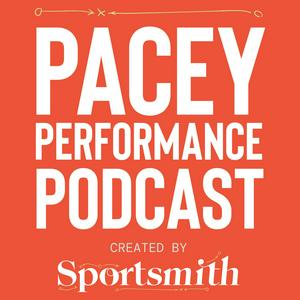
Get the free radio.net app
- Stations and podcasts to bookmark
- Stream via Wi-Fi or Bluetooth
- Supports Carplay & Android Auto
- Many other app features
Get the free radio.net app
- Stations and podcasts to bookmark
- Stream via Wi-Fi or Bluetooth
- Supports Carplay & Android Auto
- Many other app features


Pacey Performance Podcast
download the app,
start listening.



